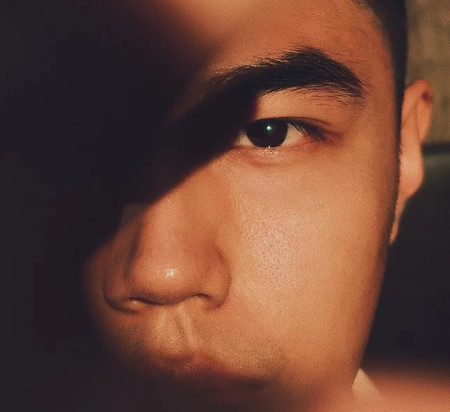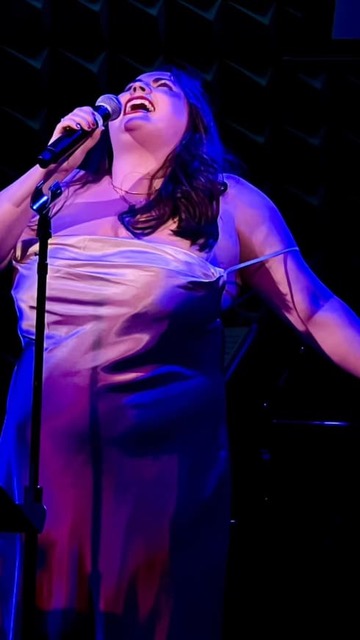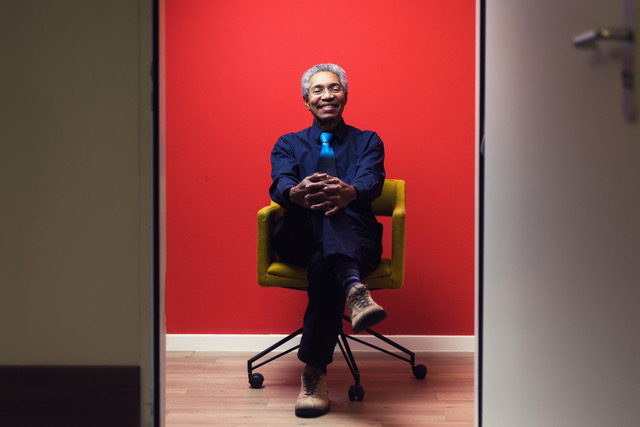Good day to you, precious seeds and shoots and bulbs and certainly you corms, with your swollen stems, and welcome to this edition of “Queer Culture Catch-up!” I write to you today fully exhausted by COVID-19, by the ways it has constrained and contained and sometimes shortened our lives, and longing for spring’s perennial queer magic. For this reason I am choosing to think of myself as a corm this year, a new thing my handsome farmboy husband just taught me about. They come back every year if you tend them over winter in the warm and dry.
I hope you’ll all be perennials with me, enjoying our shining stars of queer arts and culture in a safe and physically-distanced fashion as long as we can so that when the warm weather makes the corms start longing for planting we will be ready to bloom, babes.
Queer Data by Kevin Guyan
Okay, listen, I understand that there are more scantily-clad queer delights but hear me out: the drama of a well-crafted argument, the satisfaction of being unassailably and unimpeachable correct, the absolutely loin-tingling triumph of pointing out that some homophobe or trans-antagonist’s pet hatred hobbyhorse is built on a foundation as full of holes as the devil’s stockings. Kevin Guyan’s Queer Data, though not a quick read, is very comprehensible to an average reader and is absolutely chockablock with ways to understand how research is conducted and how it systematically discounts queer people (or counts us incorrectly, or codes us incorrectly, or…). If you ever do research on anything involving people—even something as minor as a brand-preference survey—you must read this, absolutely. But even the lay reader with no research aspirations will find so many ways to prove that their homophobic cousin Karen is just plain wrong.
“Better Together” by Shawn Zhang

Credit: Shawn Zhang
Readers, prepare yourselves: this project is so gorgeous, so complex and so incredibly well realized you’re going to fall into it in joy. Photographer Shawn Zhang has lovingly documented LGBTQ+ life in China in an absolutely stunning series of photos and interviews. With dozens of portraits and stories ranging from rural to urban, from youngsters to elders, across and beyond genders and sexualities. Translated into six languages and comprising an absolute trove of beautiful people and stories, “Better Together” is a triumph of love—of lovers together, families together, loving ourselves and loving our queer community, culture and history. Somehow, reflecting a queer experience that’s halfway around the world brings the point home even more strongly that at the end of the day, what we want most is to be connected, safe and held.
Queering The Canon

Credit: Queering The Canon
It turns out there’s a new(ish) organization of theatremakers dedicated to uplifting the work of non-binary, trans and queer women theatremakers, and it is called, I shit you not, Ring of Keys (that’s the link to the organization; here is the link to the iconic song from Fun Home: The Musical for which it is named). These worthy and beloved people are presenting a series of concerts in which they queer the canon, including queer readings of previously heterosexual songs and new, queer musical theatre work from songwriters supported by the Ring of Keys project. On March 8 at 9:30 pm EST, they’ll present Queering The Canon: Kander & Ebb, livestreamed from Joe’s Pub at the Public Theatre, directly into your hot little queer ears.
History of Transvestites in the Catskills, discussed by Harvey Fierstein
In honour of the release of his new book, I Was Better Last Night, I considered encouraging you all to go watch 1988’s Torch Song Trilogy, which I adore beyond measure. But then I came across this: Harvey Fierstein discussing his research about the largely heterosexual groupings of crossdressers who banded together for support and to share makeup tips, including the group in the Catskills that Fierstein fictionalized in his play, Casa Valentina. The play is loosely based on/suggested by the book Casa Susanna by Michel Hurst and Robert Swope about a similar real-life group. Take together, the book and the conversation are truly fascinating, and explode some of the long-held myths and legends of these communities and groups.
Keyboard Fantasies

Credit: Juri Hiensch
Beverly Glenn-Copeland, a trans musician in his late 70s, was shocked a few years ago to get an email from a Japanese fan asking how he might get an autographed copy of one of Glenn-Copeland’s albums. It turned out that the album, Keyboard Fantasies, had become an indie hit in Japan after being“rediscovered,” and Glenn-Copeland a much-sought-after musician for live performances. Keyboard Fantasies the movie is the incredible true story of a Black trans septuagenarian who finds a new lease of public performance and music through a slew of fans he had no idea he had, and reflects on returning to his true purpose as a musician after some years toiling in obscurity. The well-observed and tender documentary is available on Amazon, Apple and Google to stream.
And that, my loves, should be enough to keep you entertained as we wait out these last few weeks of staying out of the dirt, warm and dry, waiting to get back in there and bloom. I wish I could serve you a frittata and a strong cup of coffee. I’d then plant the egg shells and coffee grounds in your garden (farmboy husband says these add calcium, potassium and nitrogen) so that when you’re ready to unfurl and let the world see the full wingspan of your loveliness, it will be as brilliant as any and better than most. In the meantime, if you’re making something new, please drop me an email or DM me on Twitter—I love your news.


 Why you can trust Xtra
Why you can trust Xtra


